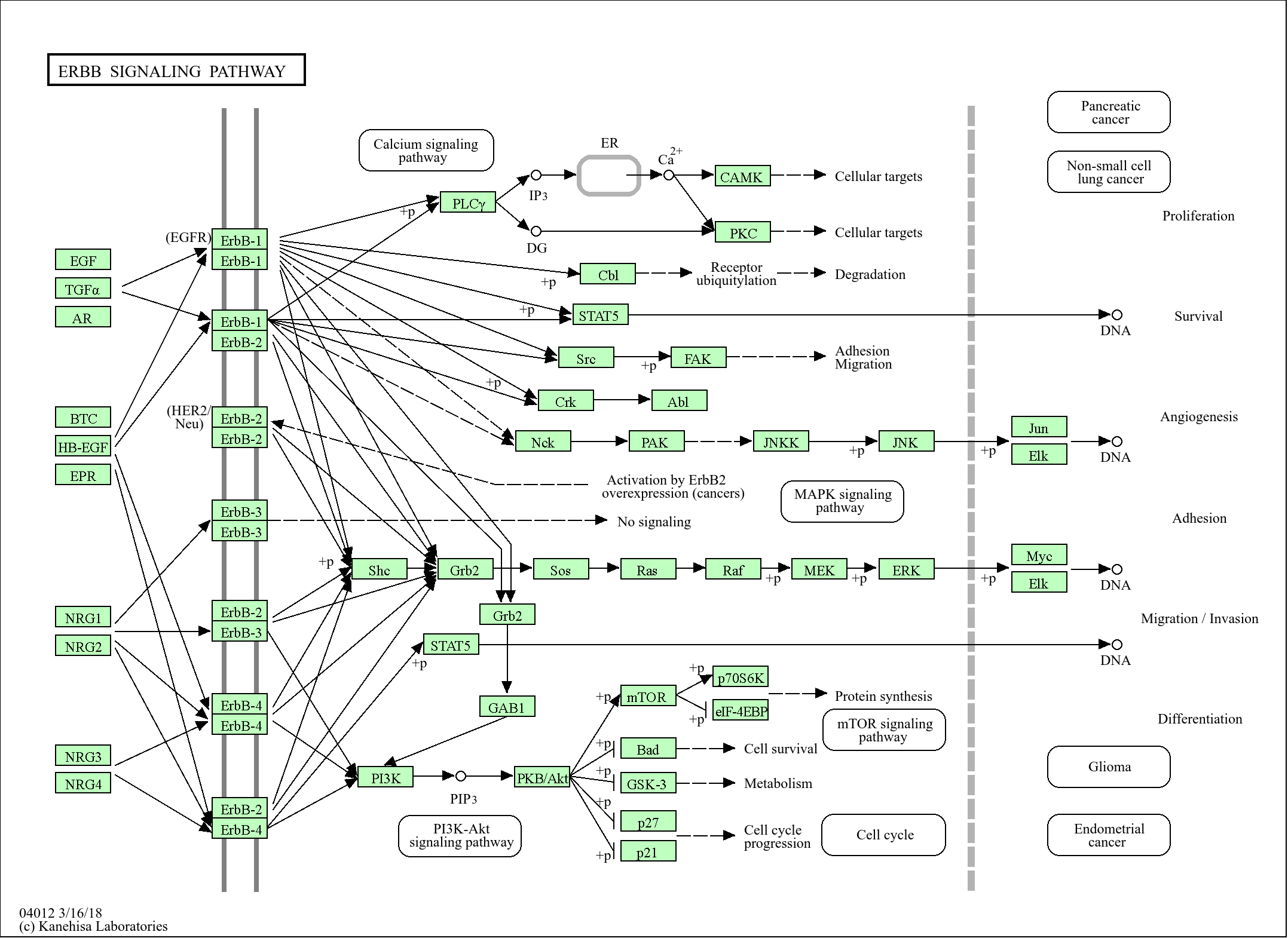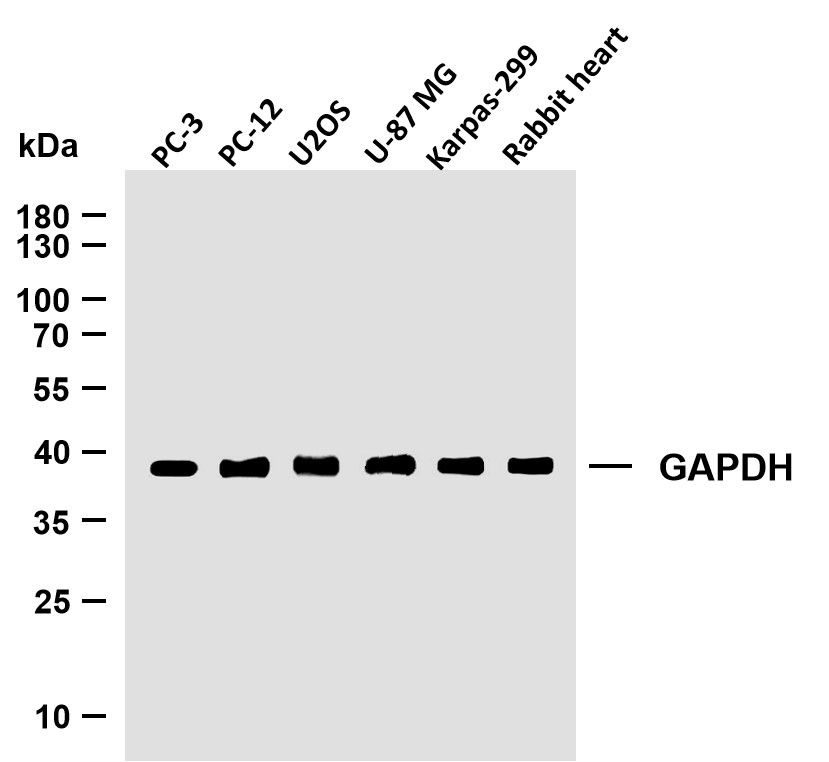
Catalog: YN2542
Size
Price
Status
Qty.
200μL
$450.00
In stock
0
100μL
$280.00
In stock
0
40μL
$150.00
In stock
0
Add to cart


Collected


Collect
Main Information
Target
ACM3
Host Species
Rabbit
Reactivity
Human, Mouse, Rat
Applications
WB, ELISA
MW
64kD (Observed)
Conjugate/Modification
Unmodified
Detailed Information
Recommended Dilution Ratio
WB 1:500-2000; ELISA 1:5000-20000
Formulation
Liquid in PBS containing 50% glycerol,0.5% BSA and 0.02% sodium azide.
Specificity
ACM3 Polyclonal Antibody detects endogenous levels of protein.
Purification
The antibody was affinity-purified from rabbit antiserum by affinity-chromatography using epitope-specific immunogen.
Storage
-15°C to -25°C/1 year(Do not lower than -25°C)
Concentration
1 mg/ml
MW(Observed)
64kD
Modification
Unmodified
Clonality
Polyclonal
Isotype
IgG
Related Products
Antigen&Target Information
Immunogen:
Synthesized peptide derived from human protein . at AA range: 270-350
show all
Specificity:
ACM3 Polyclonal Antibody detects endogenous levels of protein.
show all
Gene Name:
CHRM3
show all
Protein Name:
Muscarinic acetylcholine receptor M3
show all
Background:
The muscarinic cholinergic receptors belong to a larger family of G protein-coupled receptors. The functional diversity of these receptors is defined by the binding of acetylcholine and includes cellular responses such as adenylate cyclase inhibition, phosphoinositide degeneration, and potassium channel mediation. Muscarinic receptors influence many effects of acetylcholine in the central and peripheral nervous system. The muscarinic cholinergic receptor 3 controls smooth muscle contraction and its stimulation causes secretion of glandular tissue. [provided by RefSeq, Jul 2008],
show all
Function:
Function:The muscarinic acetylcholine receptor mediates various cellular responses, including inhibition of adenylate cyclase, breakdown of phosphoinositides and modulation of potassium channels through the action of G proteins. Primary transducing effect is Pi turnover.,similarity:Belongs to the G-protein coupled receptor 1 family.,
show all
Cellular Localization:
Cell membrane ; Multi-pass membrane protein . Cell junction, synapse, postsynaptic cell membrane; Multi-pass membrane protein . Basolateral cell membrane ; Multi-pass membrane protein . Endoplasmic reticulum membrane ; Multi-pass membrane protein . Colocalizes with TMEM147 in the endoplasmic reticulum (ER) membrane. TMEM147 impairs its trafficking to the cell membrane leading to its retention in the ER membrane. .
show all
Tissue Expression:
show all
Research Areas:
>>Calcium signaling pathway ;
>>Neuroactive ligand-receptor interaction ;
>>Cholinergic synapse ;
>>Taste transduction ;
>>Regulation of actin cytoskeleton ;
>>Insulin secretion ;
>>Salivary secretion ;
>>Gastric acid secretion ;
>>Pancreatic secretion ;
>>Alzheimer disease ;
>>Pathways of neurodegeneration - multiple diseases
>>Neuroactive ligand-receptor interaction ;
>>Cholinergic synapse ;
>>Taste transduction ;
>>Regulation of actin cytoskeleton ;
>>Insulin secretion ;
>>Salivary secretion ;
>>Gastric acid secretion ;
>>Pancreatic secretion ;
>>Alzheimer disease ;
>>Pathways of neurodegeneration - multiple diseases
show all
Signaling Pathway
Cellular Processes >> Cell motility >> Regulation of actin cytoskeleton
Organismal Systems >> Endocrine system >> Insulin secretion
Organismal Systems >> Nervous system >> Cholinergic synapse
Human Diseases >> Neurodegenerative disease >> Alzheimer disease
Human Diseases >> Neurodegenerative disease >> Pathways of neurodegeneration - multiple diseases
Environmental Information Processing >> Signal transduction >> Calcium signaling pathway
Reference Citation({{totalcount}})
Catalog: YN2542
Size
Price
Status
Qty.
200μL
$450.00
In stock
0
100μL
$280.00
In stock
0
40μL
$150.00
In stock
0
Add to cart


Collected


Collect
Recently Viewed Products
Clear allPRODUCTS
CUSTOMIZED
ABOUT US
Toggle night Mode
{{pinfoXq.title || ''}}
Catalog: {{pinfoXq.catalog || ''}}
Filter:
All
{{item.name}}
{{pinfo.title}}
-{{pinfo.catalog}}
Main Information
Target
{{pinfo.target}}
Reactivity
{{pinfo.react}}
Applications
{{pinfo.applicat}}
Conjugate/Modification
{{pinfo.coupling}}/{{pinfo.modific}}
MW (kDa)
{{pinfo.mwcalc}}
Host Species
{{pinfo.hostspec}}
Isotype
{{pinfo.isotype}}
Product {{index}}/{{pcount}}
Prev
Next
{{pvTitle}}
Scroll wheel zooms the picture
{{pvDescr}}




















